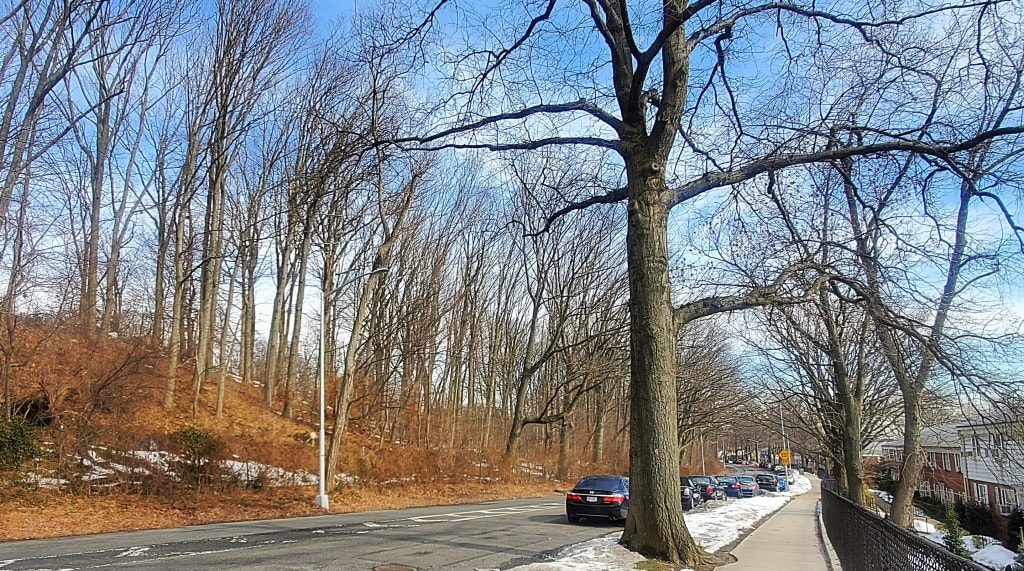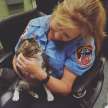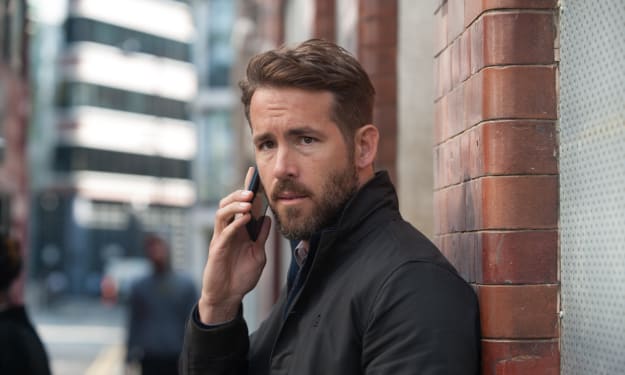The Spencer Spectacle
A loner understands the value of his choices

Eddie was proud of the life he had built, beholden only to the two giant orbs in the sky which dictated the parameters of his very flexible schedule. His days were guided by the ebb and flow of light and changing seasons and he felt in tune, finally, with the world around him.
Fifteen years earlier, laws regarding the detention of non-violent psychiatric patients had changed to coincide with major decreases in funding. As a result, Eddie had been discharged from the place where he had spent most of his adult life. Without a second thought, he felt, they handed him a benefit card, several new prescriptions, appointed him a social worker, and sent him along his way.
It was a terrifying time for the newly released patient. He was not sure what he was expected to do, or even how he was supposed to act. In the facility he’d been somewhat comfortable, he could navigate the heavily regimented day others had planned for him. In regular society his interactions were confusing and caused him anxiety and fear.
Since he had no family, Eddie wandered the parks and streets near his former facility for several weeks. One day he came across discarded camping supplies in a dumpster. It reminded him of a happy memory, of spending time outdoors with the stepfather he had for a while. He decided to use the equipment to set up a campsite in a patch of woodland between a major highway and a street bordering a townhouse complex.
Over the years, his small camp evolved into an insulated, fortified structure set into a large trench. He had dug the trench on a hill and it was well-hidden behind some downed trees. Because of camouflaged tarps that Eddie continually embellished with glued-on branches and leaves, it was covered much of the time. He had numerous hidden caches of supplies and food stockpiles plus another satellite campsite in a different trench further away. There were several catchment systems for rainwater and an impressive variety of vegetables, some growing with irrigation and mini greenhouses.
Thanks to heavy foliage for much of the year, and the covert movements of its lone resident, this thoughtfully designed outpost was mostly ignored by the surrounding community. It was hard to believe there was something of a ‘mountain man’ communing with nature in confines of a crowded major metropolis. But here, Eddie contentedly went about the cycles of his daily routines unnoticed by people living less than 100 feet away. He enjoyed gardening and building things. He was active and eating healthy food, much of it grown himself. He still ventured out from time to time, to pick up prescriptions, and various other errands, but knowing he would return to the relative oasis he had created made it easier.
Despite having built a life centered on avoiding humanity, he took an interest in the lifestyles of his co-op neighbors residing along the road below. He justified the voyeuristic observations, made through his binoculars, by saying it was required for self-preservation. But in all honesty, he was genuinely curious about people who had entirely different burdens and conflicts that he did.
It was amazing how much information you could garner by just observing the small things people did around their homes and going through their trash. Like a viewer hooked on television show, he became somewhat drawn to these ‘distant’ humans, despite being confused by things they did from time to time.
He knew that the resident in 222-A was having an affair. 245-B was a family with mischievous twin daughters who tormented the downstairs residents. One man on the second floor never invested in curtains though he had a huge wardrobe of medieval costumes, making him interesting to pay attention to. Eddie’s binoculars were frequently directed towards a single mother and her teenage son who argued frequently, reminding him in some ways of the life he’d had pre-institution. He also paid attention to the woman living in 227-A. She had taken over the care and feeding of Ethel’s feral cat colony when she left. She waved to Eddie on occasion and not in a mean-spirited way making her his current favorite of the residents.
Mr. Langdon, Eddie’s arch-enemy and President of the Spencer Townhouse Co-Op Association, lived on the end. Aside from tormenting Eddie, Langdon was the nemesis of his friend, Ethel, which alone made him Eddie’s nemesis as well. Langdon saw Ethel as a “bleeding-heart kook” and took issue with the neighborhood cats Ethel fed. The only thing Langdon hated more than strays were people who were sympathetic towards strays.
Eventually, Mr. Langdon spearheaded a successful effort to have Ethel removed to an assisted living facility. In the monthly newsletter the co-op put out for its residents, Eddie regularly found it in the trash, Langdon sanctimoniously patted himself on the back for helping ‘poor Ethel’ with her supposed cognitive decline. He wanted no accolades for being the one who stepped in to help, it was just something he needed to do. It caused Eddie to struggle with both sadness and rage for quite some time.
The same issue of the Spencer Spectator had Langdon demanding residents sign an enclosed anti-vagrancy petition, calling for action from city representatives. As the only homeless person in the vicinity, Eddie couldn’t help but take this personally.
Eddie had been one of Ethel’s “strays” and Eddie adored her. She’d been a wonderful friend, helping him in countless ways. She gave him frequent, well thought-out care packages, assisted him with getting a library card, and when the co-op locked up the garbage areas (part of Langdon’s anti-vagrancy campaign) Ethel had given Eddie a key. But the biggest symbol of her kindness, was the black Moleskine notebook she had gifted Eddie.
“For your interesting thoughts,” she had written in it.
He used the journal as a place to work on his homemade engineering projects. He began recording everything he needed, diagraming designs, and detailing the process. Seeing his ideas on paper made everything seem possible. Soon, just like his camp, the creamy yellow pages evolved to become a recorded history of Eddie’s triumphs.
The book contained his charts and perpetual calendars. He kept his planting schedules there. He drew maps of the locations of his underground stashes. He listed ideas for improvements, names for future squirrel and raccoon babies, notes about library and pharmacy hours, and things he needed to ask his doctor. He kept important cards and seed packets in the big envelope inside the back cover.
That simple, yet elegant, black journal had saved Eddies life.
The book kept him focused, organized, and gave him things to look forward to. Each idea brought forth more ideas with incentives to create and learn. Every new project in the woods meant life in regular society moved further and further away and acknowledging that had lifted a tremendous burden from Eddie’s shoulders.
Much of Eddie’s life had, subconsciously or not, centered around changing to fit in with the world at large. By removing that premise entirely, Eddie gained a new perspective on much of the fear and anxiety that had been central to his life. There was, of course, far more to his complex psycho-social issues but removing himself from the primary cause of much of his sense of failure had given Eddie a confidence he never had before. He felt comfortable here, alone with his wild animals and his binoculars. The journal was a clear record of his adaptation to a way of life he could reconcile with. As long as he maintained it, with the help of his schedules and dates and maps, he’d be fine. Actually, he felt more than fine, he felt free.
The book was also a symbol of Ethel’s kindness and acceptance. When she gave him the little book it was because she believed in his ideas and knew he needed more than just food and shelter. Ethel didn’t pretend to understand him but instead of trying to change him, assisted him as best she could. The book reminded him of the love he had for this wonderful woman who had given him hope for both himself and the rest of humanity.
Yes, Eddie knew, that book was worth far more than the $20,000 that had practically landed on his lap, almost quite literally.
Eddie had been relaxing, reading the latest edition of the Spectacle, when the cash arrived in a knapsack. It had been flung out of the open window of a car racing down the highway and rolled down the hill, resting on one of the tarps covering Eddie’s living space. The siren of a fully engage police car followed shortly after, as Eddie opened the bag, finding not only the haphazard collection of currency but also several large plastic baggies full of pills and a loaded firearm. It was quite an interruption to his mundane evening and he wondered what to do about it.
Eddie knew that $20,000 had the power to change his life. There was a time when he would have welcomed that, but no longer. His way of life was not ideal but it gave him a sense of belonging and purpose. The way he saw things now, any changes would be detrimental.
His thoughts immediately went to Ethel and he knew she would have helped so many with that kind of money. But she was gone. He’d tried to find her but had been unsuccessful, told she’d likely passed, not so uncommon when seniors are forced into a lifestyle change they never wanted. It was something that resonated clearly with Eddie.
As he thought about what to do, he glanced at the newsletter and saw that the new cat lady was taking issue with how most of the co-op improvement projects seemed to occur near the Langdon corner. If she held egalitarian views about the distribution of maintenance dues, she may share the same mindset over the $20,000.
That night he slipped a small package into the mail-slot of the current cat colony caretaker. Along with the money was an anonymous letter about the life of his friend Ethel and how he was entrusting her legacy with a stranger. He hoped the words he had written would be inspiring enough for her to use at least some of it to help others. He also warned about spending it all at once. (“You don’t want the IRS or what-have-you to know you’ve come into a big windfall.”)
Another thing Eddie did was move the empty knapsack to a location far away from his living area. He placed it out in the open, where it would be easy to find. He also made sure clear, but not too obvious, footprints leading from and back to Mr. Langdon’s front door would be discernable as well, along with a crushed pill or two, partially kicked away from his walkway. He left an empty pill bag clinging to one of the newly planted bushes near his front door.
Eddie went to one of his stashes and pulled out a container of popping corn. He returned the plastic bin in the deep hole and replaced the netting cover containing leaves, branches, and other assorted tree parts, via a discreet pulley system. This simple, yet very effectively designed receptacle, which hid things out in the open, was another achievement Eddie was proud of.
The jar he had taken out was a big one. He figured there would be much excitement in the coming days and he would probably need a good supply of snacks. As he settled in later that night, he hoped that Ethel, wherever she was, would be watching too.

About the Creator
Nancy Gwillym
I'm a soon-to-be retired paramedic in NYC. I'm also a crazy cat/bird/etc lady who writes stories. Thank you for reading!






Comments
There are no comments for this story
Be the first to respond and start the conversation.